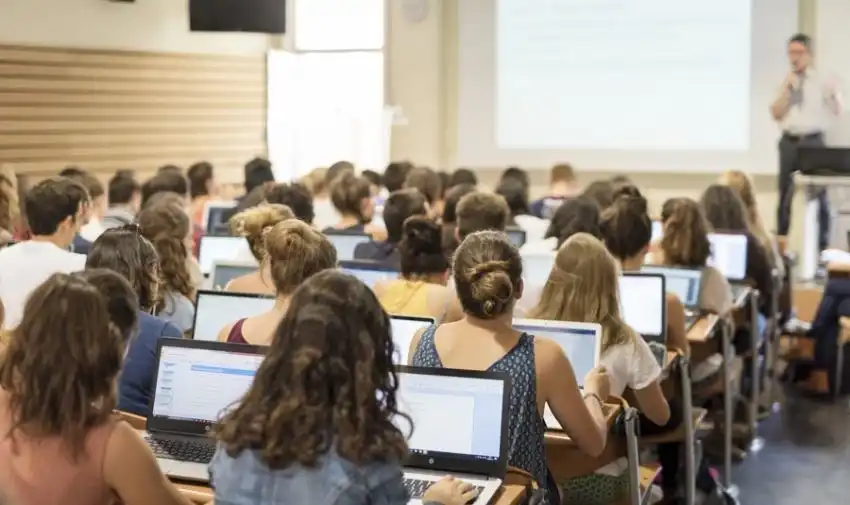Home>Advice for Teaching Large Lectures
21.11.2017
Advice for Teaching Large Lectures
Teaching a large lecture is a major challenge. Professors must overcome the stress they feel from being in front of a large audience of students, whose attention may be hard to catch. Also, student attendance is not mandatory. Professors must therefore make the course interesting enough so students find that the benefits of attending the lecture are greater than the opportunity costs.
What teaching methods are best to reach this objective? This article provides five broad recommendations to help professors deliver more lively lectures. It also suggests questions that professors can use to prepare their lectures.
Five articles on the following recommendations will be posted in the coming weeks:
- Consider that lectures are an exchange between students and professor.
- Create lectures that are stimulating and unique, and include additional course materials to which students can relate.
- Help students find their way in your course and field, by organizing lectures and course materials efficiently.
- Adapt your teaching to students’ heterogeneous levels of knowledge, and to the speed at which students are able to make progress in class.
- Share your passion.
These recommendations are based on feedback provided by Sciences Po students from their first year undergraduate large lectures. They are also based on my own experience giving a large lecture in microeconomics. Finally, these recommendations are based on the results of academic research.
The pieces of advice in this article are not exhaustive. Furthermore, it is not always necessary to follow all recommendations, which can be more or less relevant depending on the course and context. Nonetheless, I hope that these recommendations can help professors improve their pedagogical practices for large lectures.
Professors preparing their large lectures can also answer the following question before class: what can I do in this lecture to make my students want to attend the following lecture?
Anne BORING, Assistant Professor of Economics, Erasmus University Rotterdam and research fellow, LIEPP and PRESAGE, Sciences Po.
